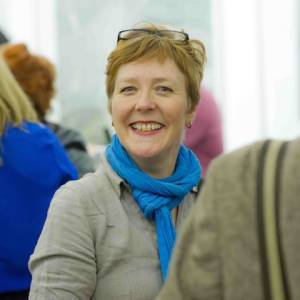My Gran's Dux Medal
A journalist friend emailed to say she is writing a piece for a magazine about family keepsakes which have been passed down the generations and I suggested she use the example of my gran's Dux medal.
I took a picture of it to send to her and as a result, both my gran and her medal have been on my mind today.
I'm named after her - a peculiarly Scottish tradition, as is a Dux Medal. My full name on my birth certificate is Janet Middleton Patience.
Janet Middleton, was born at New Farm on the island of Bute on December 2nd, 1906. She was the third youngest of eight children. Her father did all sorts of jobs, including driving the four-in-hand bus from Kingarth to Rothesay and working as night watchman at Mount Stuart.
She was a clever girl who excelled at maths, English, and 'domestic subjects'. She received this Dux medal, given to the top pupil in a school, from Rothesay Supplementary School in 1921/22. She would have been 15 at the time.
Before she died in 1992, she gave me her Dux medal. She was very proud when I went to university, the first in our family to do so. She would have loved to have gone to University, she told me often.
There had been a chance to pursue a scholarship for entry to Glasgow University apparently, but her elder sisters girls put the kibosh on that idea, telling her not to be so daft.
Clever working class girls needed to know their place in these days.
Instead, gran left school and was dispatched by the family to look after an old bachelor uncle in the country.
I've just spent the last hour or so trying to find a reference to Rothesay Supplementary School online but so far, haven't found anything. The main secondary school was 'Rothesay Academy & Thomson's Institute', now simply Rothesay Academy.
The National Library of Scotland has digitised The Bute County Directories from the turn of the century but I couldn't find a mention of a Supplementary School in any of them, fascinating though they are as a snapshot of social history.
I did find an essay on Social Class and the Secondary School in 1930s Scotland, and from a quick read-through, it looks like on leaving her primary school, Kingarth Public School, my gran would have passed a 'qualifying' exam which led to either a short Supplementary Course of two or three years or a Secondary course lasting five or six years.
The latter was considered a 'proper' secondary course and would lead to a leaving certificate and the possibility of a university education.
The former course was the poor relation, and according to this essay, the two groups of qualifiers 'had such different needs that as far as possible they ought to be kept separate'.
So, it turns out my clever gran was firmly in the 'no money or influence' category!
I'm getting angry just thinking about it. No wonder she was proud when her namesake made it to university some 60 years after she won her prized Dux Medal.
- 0
- 0
- Apple iPad mini
- 1/25
- f/2.4
- 3mm
- 64

Comments
Sign in or get an account to comment.


